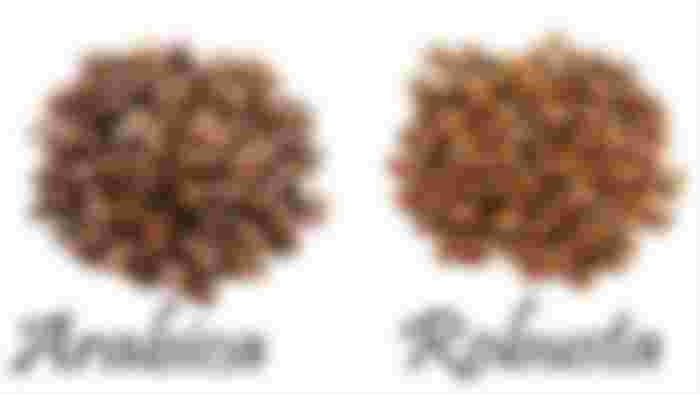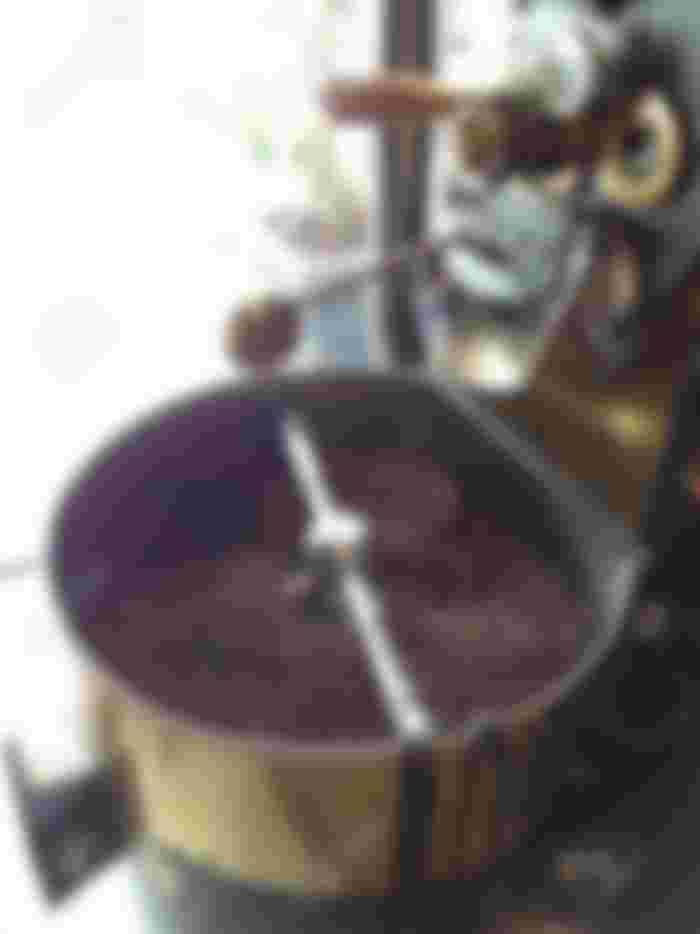I'm pretty sure almost everyone here can say that they love coffee since it's become a part of our mornings and even afternoons at times. It wakes us up and keeps us hyper for the day (or at least in my case XD ) but then, did you ever wonder about the types of coffee you're drinking? Brand aside, how much do you know about your coffee?
For starters, we should really get to know the beans. There are 4 main types of coffee beans used in the market but honestly, there are too many strains of coffee beans people make use of. Here, I'd like to focus on just 2 because I'll be focused on the manufacturing, really

So here we have Arabica and Robusta. these are ones that are fairly easy to differentiate. Robusta is round while arabica is long and a bit flat. As for market uses, Robusta is what you would find being used for brewed coffee shops (but it varies too, really. If you see cheap coffee shops, they'll mostly use this. Starbucks also uses these beans, that's why their coffee keeps me up for 2 days straight), mostly because it has a stronger scent and flavor but then Arabica is the one mostly used for instant coffee manufacturing.
Why? Well simply because they grow faster, the plant which these beans are gathered from only take 7-9 months to reach maturity compared to the robusta which takes around 11 months to mature and bloom. Another is that it's easier to grow. Almost 3/4 of the coffeee beans cultivated around the world is arabica because they don't require special environments like the robusta plants so it makes it easier for the beans to be gathered by machines.
Coffee processing

So this is one of the most basic flowcharts I could find (too lazy to make my own, sorry) that shows each step of coffee processing. What's fascinating about this particular product is that almost each step will have a marketable product of its own, it would just depend on the manufacturer whether they would make use of that or just sell their coffee as is.
From green beans treatment where the beans are washed (you see green coffee beans being sold too, right? either as whole beans, crushed beans or powdered) and if they need to be decaffeinated, that will be done so in either this step or later on. Nest on you'll go to roasting where they roast the coffee until it's brown. The temperature will vary per bean but usually, it will not pass 250 degrees else it will lose all its aroma and and it might burn (roasted coffee is also marketed as is XD).

If you can imagine the smell of that though- some manufacturers (specially the large scale ones) actually collect the steam/smoke generated from this step and use it later on in the process
Once the coffee is roasted, it gets ground to make it easier for flavor extraction (again, ground coffee beans is also sold but not much on extracts) then from extraction, they'll usually get a paste like item which can be decaffeinated, turned into the instant coffee in a can/bottle mix like what nescafe (the ones in the tetrapack box with the french vanilla and macchiatto flavors) and kopiko (kopiko brown, 78, black, blanca) do (these have better nutritional value than your instant coffee tbh and it explains why these drinks have a stronger buzz feeling than the instant ones), or they undergo further treatment either by drying
So we should know that there are 2 main types of drying. One's the spray drying then there's freeze drying. on a comparison, spray dried coffee is honestly the cheaper kind of coffee and the less nutritional one too if we're talking about that. Why so? because the extract from the previous step will have to undergo extreme heating just to get a powdery form like that. Under extreme heat, most of the nutrients will have already degraded. leaving you with the less satisfying coffee (this is what they use for the 3 in 1 mixes here. don't like those much though). Sometimes large manufacturers even use the steam/smoke collected from the roasting process to cheat the aroma into the powder but it's still not that satisfying to me. They can be further processed into agglomerates though but here in my country, this is not that popular an option.

Then for freeze drying, this one is the healthier option on instant coffee because most of its nutrients is retained. The extracts gathered is placed in a freezers and cooled to -60 degrees. they will eventually form crystals but on the other end, it's also on the expensive end of the coffee product. Some of the brands that use this method is Folger's, Maxwell house (the first to introduce this method tbh) them there's Nescafe gold


So now that you know a bit about your coffee, tell me which ones you guys usually drink
@charmingcherry08 I hope this satisfies your need to know more about coffee? Though a bit late
More science articles?
Chemistry for the day: Chocolate and Caffeine poisoning
Chemistry for the day: The brain loves sugar
Chemistry for the day: Kojic acid vs. Glutathione vs. Collagen






I need your help pls reply